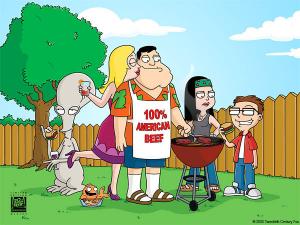How to Have a Green BBQ
Submitted by Stephanie Kumar on | Updated Sat, 17/09/2016 - 23:49

One of the best parts of summer is grilling on the BBQ. But the question is, which BBQ technic is better for the environment? Charcoal or Propane?
Charcoal Facts
If you love to use charcoal for your cookout, read this and find out what charcoal does to the environment. When you have a cookout using charcoal it takes a lot of time to get a charcoal grill going. Charcoal is dirtier than gas but it comes from renewable resources. Most charcoal is a blend of sawdust, cornstarch and lighter fluid, so when it's burned, it produces 11 pounds of carbon dioxide per hour (huffingtonpost.com). Charcoal cookouts produce CO2, nitrous oxides, volatile organic compounds, and soot (motherjones.com). Also charcoal continues to create greenhouse gases as it slowly burns out after you are done with your cookout.
Charcoal Defenders
There are many people that love the smoky flavor of a charcoal cookout and feel it does not hurt the environment. Charcoal supports say the substance is carbon neutral (livegreen.recycle.com). Charcoal is made from trees that take carbon dioxide from the atmosphere as they grow. When the charcoal is burned the carbon dioxide is returned to the atmosphere, closing a carbon neutral cycle (grilldome.com).
Propane Facts
On the other hand, if you love to use propane for your cookout read the facts. A cookout using propane, heats up quickly, reducing waste. Propane produces 5.6 pounds of carbon dioxide per hour, but it comes from non-renewable fossil fuels (livegreen.recyclebank.com).
Charcoal cookout v. Propane cookout
Now lets compare charcoal and propane side by side. On average, Charcoal grilling creates three times more greenhouse gases than propane grilling. Charcoal averages almost 15 pounds of carbon emissions, but a propane cookout is around five pounds per BBQ. Charcoal cookouts results in 105 times more carbon monoxide than burning propane and releases volatile organic compounds (huffingtonpost.com). Also charcoal continues to release greenhouse gases while it is cooling off; on the other hand, propane typically turns off with just a switch. It takes gas millions of years for it’s organic matter to break down into fossil fuels (livegreen.recyclebank.com). However it does take less time and creates less carbon dioxide, which makes PROPANE THE WINNER !
Other BBQ Green Tips:
If you are wondering what else you can do to make your cookout greener here are some more tips. According to livegreen.recyclebank.com, if you love charcoal cookouts you should use natural charcoal or wood briquettes because regular charcoal or soaked briquettes may have additives or coal dust. Also use a chimney starter to light the coals instead of lighter fluid or briquettes soaked with fluid because they emit smog-forming volatile organic compounds into the air. Another tip is to clean up right away; clean your grill with warm water and baking soda instead of harsh chemical cleaners to remove burned food after it’s cooled.
HAPPY GREEN BBQ-ING !!
Sources
http://www.huffingtonpost.com/2008/06/27/charcoal-vs-gas-grill-whi_n_109524.html
http://www.motherjones.com/blue-marble/2009/09/bbq-econundrum-charcoal-or-gas
https://livegreen.recyclebank.com/what-s-your-bbq-footprint
http://www.grilldome.com/eco-friendly.html
Image
http://www.123rf.com/photo_6720921_bbq-party.html
You will save the Earth by sharing and/or tweeting (corny right?)





